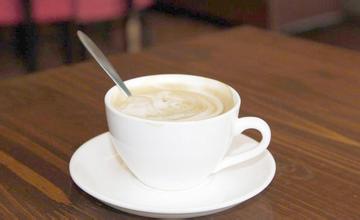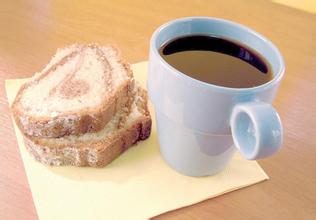Puerto Rico coffee producing area with pure flavor, aroma and heavy particles
The cultivation of some old varieties of Arabica coffee beans, although the yield is lower than other varieties, but generally high quality. People here have been using an ecological and intensive planting method, using only some low-toxic fertilizers and chemicals, and taking mixed crop planting measures to make the soil more fertile. When it comes time to pick coffee beans, people walk back and forth between coffee trees, picking only fully ripe coffee beans, and then wash them in a roller device for 48 hours. Yaocote chooses coffee beans to be preserved in shells before they are shipped and will not be peeled off until the order is shipped to ensure the best freshness of the coffee. Relevant U.S. government staff, such as FDA and USEA, will also be present when the goods are submitted, and they work to monitor producers' compliance with federal regulations. There are also staff from the local evaluation board, who take 1 bag out of every 50 bags as samples and use international gauges to evaluate their quality.
Jaime Fortu Fortuno, president of the acting bank Escogido Yauco in Escoki, pays silent attention to all this work, even the smallest details, every year. Fortuno is an investment banker who graduated from Harvard Business School. He was determined to seize every opportunity to open up a top coffee market in Puerto Rico. He expects a maximum annual output of 3000 bags of 45kg each, less than 1 per cent of the island's total coffee production. Yaocote selected is a fascinating coffee, it has a complete flavor, no bitterness, rich nutrition, rich fruit, and is worth tasting. Even Thales in Harrogate, UK, has imported 50 bags of Yaocote specialty coffee, which is grown only on three farms in the southwest of the island and has a strong flavor and a long aftertaste. This kind of coffee is very expensive and its flavor is comparable to that of any other coffee variety in the world. In the Yauco area, the coffee is owned and operated by local planters. The mountain climate here is mild, the plants have a long mature period (from October to February of the following year), and the soil is of high quality clay. Some old varieties of Arabica coffee beans are grown here, and although the yield is lower than that of other varieties, they are generally of high quality. People here have been using an ecological and intensive planting method, using only some low-toxic fertilizers and chemicals, and taking mixed crop planting measures to make the soil more fertile. When it comes time to pick coffee beans, people walk back and forth between coffee trees, picking only fully ripe coffee beans, and then wash them in a roller device for 48 hours. Today, Puerto Rican gourmet coffee has been exported to the United States, France and Japan.
Coffee in this country is generally carefully planted, with pure taste, aroma and heavy granules, among which the best is among the world's famous brands. The best coffee is Yaoke Yauco Selecto, which means "Selecto". Grand Lares Yauco is produced in the southwest of the island, while Lars coffee is produced in the south-central part of the island. Yaocote, a gourmet coffee from Puerto Rico, is grown only on three farms in the southwest of the island. It has a strong flavor and a long aftertaste. This kind of coffee is very expensive and its flavor is comparable to that of any other coffee variety in the world. In the Yauco area, the coffee is owned and operated by local planters. The mountain climate here is mild, the plants have a long mature period (from October to February), and the soil is of high quality clay.

Important Notice :
前街咖啡 FrontStreet Coffee has moved to new addredd:
FrontStreet Coffee Address: 315,Donghua East Road,GuangZhou
Tel:020 38364473
- Prev

Taste and Flavor characteristics of Jamaica Blue Mountain Coffee
80% of Jamaica is covered by mountains, with steep mountains and coffee trees almost entirely on rugged slopes. Therefore, the process of picking coffee beans during the harvest period is very difficult, and non-local skilled female workers are simply not competent. When picking, we should choose the right mature coffee beans, immature or ripe coffee beans will affect the quality of coffee. After picking
- Next

The aftertaste of Ecuador's top coffee introduces boutique coffee
Ecuador is the highest Arabian coffee plantation in the world. Since the coffee tree was first introduced into Ecuador in 1875, the quality of its coffee has remained unchanged for 100 years, especially the coffee harvested in early June every year, which is known as the best coffee in the world. Ecuadorian coffee beans are divided into Galapagos and Segante, both of which have large granules and large quantities.
Related
- Does Rose Summer choose Blue, Green or Red? Detailed explanation of Rose Summer Coffee plots and Classification in Panamanian Jade Manor
- What is the difference between the origin, producing area, processing plant, cooperative and manor of coffee beans?
- How fine does the espresso powder fit? how to grind the espresso?
- Sca coffee roasting degree color card coffee roasting degree 8 roasting color values what do you mean?
- The practice of lattes: how to make lattes at home
- Introduction to Indonesian Fine Coffee beans-- Java Coffee producing area of Indonesian Arabica Coffee
- How much will the flavor of light and medium roasted rose summer be expressed? What baking level is rose summer suitable for?
- Introduction to the characteristics of washing, sun-drying or wet-planing coffee commonly used in Mantenin, Indonesia
- Price characteristics of Arabica Coffee Bean Starbucks introduction to Manning Coffee Bean Taste producing area Variety Manor
- What is the authentic Yega flavor? What are the flavor characteristics of the really excellent Yejasuffi coffee beans?

